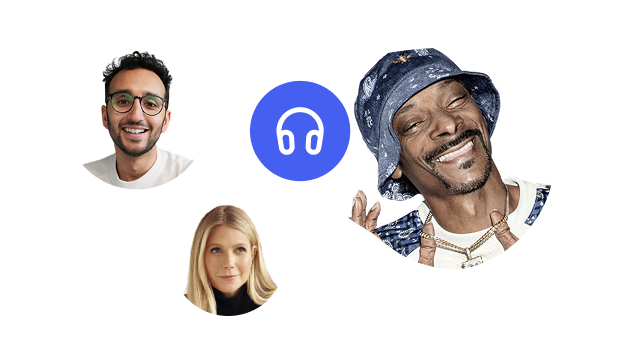Imagine listening to a new song by The Weeknd and feeling that signature mix of heartache and groove, only to discover that it wasn't purely a human creation. Yes, artificial intelligence had a hand in it! This is no science fiction scenario. "The Weeknd AI song" is a real collaboration between cutting-edge tech and one of the most influential artists in the music industry today. How did we get here, and what does this mean for music, technology, and culture? Let's dive in.
The rise of AI in music
Just a decade ago, if you mentioned the concept of AI-generated music, people might have pictured scenes from futuristic movies or dismissed it as pure fantasy. Today, that fantasy is rapidly becoming an influential reality. While artificial intelligence's role started primarily in data analytics and recommendation algorithms, it has grown to become a significant player in the actual creative process of music-making.
Streaming services like Spotify and Apple Music are pioneers in using AI tools to analyze user behavior, creating playlists and recommending tracks based on individual tastes. These platforms have become such an integral part of the music industry that record labels like Universal Music Group (UMG) are now entering strategic partnerships to leverage AI capabilities. Far from being the final straw or a gimmick, AI is increasingly becoming a trusted collaborator for artists, helping them reach wider audiences and even assist in the creative process.
Artificial intelligence technologies like machine learning and neural networks are now so advanced that they can analyze vast amounts of data — from the notes in a symphony to the beats in a hip-hop track. This data-driven approach is redefining how songs are composed, produced, and even marketed. In a nutshell, AI is taking its seat at the table and is set to be a game-changer in a music industry that has been traditionally slow to adopt new technologies.
Who is The Weeknd?
In the realm of contemporary music, few names shine as brightly as that of The Weeknd. Hailing from Canada, this multifaceted artist has a distinct blend of R&B, hip-hop, and pop that sets him apart in an industry teeming with talent. With chart-topping hits and numerous awards, The Weeknd has garnered a massive following on social media platforms, including TikTok, where his songs often become viral trends.
Unlike some artists who find a successful formula and stick with it, The Weeknd is known for his willingness to experiment. While his music has often been in the same chart spaces as other big names like Drake, his unique path has led him to continually redefine himself. That's where his recent foray into AI-generated music comes into play. While Drake has also dabbled in technological enhancements for his music, it's The Weeknd who has taken the bold step of incorporating AI, not just as a tool, but as a co-creator in his artistic process.
The story behind "The Weeknd AI song"
When The Weeknd announced his new song "Heart on My Sleeve" in partnership with tech company Ghostwriter977, the news sent ripples across both the music and technology communities. Revealed through a flurry of social media posts, the project wasn't simply another track to add to his already impressive discography; it was an experiment, a ground-breaking moment for art and technology. During an in-depth interview with Financial Times, The Weeknd mentioned his enthusiasm for pushing the envelope, for exploring uncharted waters in an industry that can often be formulaic.
The song stands as a testament to what is possible when two seemingly disparate worlds — art and artificial intelligence — collide. Far from being a gimmick, this project showcased The Weeknd's signature vocals and emotional depth, while also elevating it with the innovative use of AI technology.
The technology powering the song
When you listen to "Heart on My Sleeve," you're not just hearing The Weeknd's iconic sound; you're also hearing the results of sophisticated Generative AI. Imagine a tool that's like a ChatGPT, known for generating human-like text based on the data it's trained on, but this one is focused entirely on music. It analyzes countless hours of The Weeknd's previous works — from the vocals to the background instruments, from the beats to the melodies. Then it uses this data to create a composition that is both refreshingly new and wonderfully familiar.
The role of AI in composition
While The Weeknd provides the artistic vision, the Generative AI serves as a sort of ultra-advanced ghostwriter. However, calling it just a ghostwriter would be an understatement. It's more like an artistic partner, contributing to the melody and even the lyrics of the song. The AI sifted through a wealth of data, grasping the nuances of The Weeknd's musical style and his signature vocal patterns. The resulting collaboration yielded a song that is a true blend of man and machine, capturing the soulful, emotive core that fans love about The Weeknd while integrating the precision and possibilities offered by AI.
The role of AI in production
The artificial intelligence's role didn't stop at the composition stage. The song's production, which involves several intricate processes like mastering, sound mixing, and beat synchronization, was also enhanced by AI technologies. These were once areas that only human experts would dare tread, requiring years of experience and a finely-tuned ear. Now, advanced AI tools can analyze the mathematical aspects of sound to create a well-balanced and harmonious track, assisting human experts rather than replacing them.
In the production of "Heart on My Sleeve," various AI tools were used to fine-tune the audio quality, ensuring that the vocals and instruments were perfectly balanced. The software could make micro-adjustments to the sound in real-time, something that would take a human expert significantly longer. It's yet another example of how artificial intelligence is not just an add-on but an integral part of the modern music-making process.
Audience reaction and cultural implications
So how has the world received "Heart on My Sleeve"? Social media platforms, from Twitter to TikTok, have been abuzz with chatter. Many people are excited about this technological marvel, while others question its authenticity. Deep fakes in the realm of politics, with figures like Trump, have made people wary of AI's role in creating art.
Fan engagement
Fans have embraced the new song with open arms, turning it into a viral sensation. Some have even created their own versions on TikTok, showcasing their interpretations of the AI-Weeknd collaboration. AI companies are reveling in the increased interest, viewing it as a significant step forward in public acceptance of AI in creative endeavors.
The debate: Art vs. Artificiality
Not everyone is on board with the union of AI and music. There's an ongoing debate, especially among purists who believe that AI-generated music lacks the "soul" that comes from human creativity. A similar sentiment was shared when Kanye released a song featuring AI Drake, raising questions about the role of AI in hip-hop, a genre deeply rooted in raw human emotion.
The future of AI and music: Beyond The Weeknd
With the rise of streaming platforms and changing copyright laws, AI-generated songs are set to redefine the future. Artists like Selena and rappers like Savage are reportedly looking into AI collaborations, indicating this is more than a passing trend. But questions remain: who owns the intellectual property for an AI-generated song? Takedown requests for songs with copyright issues could get more complicated with AI's involvement.
Legal and ethical considerations
The legal framework surrounding AI-generated music is still a bit of a wild west. California and India are among the places starting to consider what intellectual property law should look like in the era of AI. Due process and due compensation for artists are a hot topic, particularly as record labels like UMG grow increasingly interested in this technology.
The next big thing or a passing fad?
"AI-generated" is the latest buzzword, but will it stick around? It could be that AI in music ends up like "Ice Spice" or "Munch"—trends that captured the public's imagination for a short while before fading into obscurity. Or it could become as ingrained in our culture as streaming services have, fundamentally altering how we consume and create art.
So there you have it, an exploration of what "The Weeknd AI song" means for music, technology, and the world at large. It’s a conversation that’s just beginning, and one that’s sure to continue as we navigate the increasingly blurry lines between human creativity and technological innovation.
Speechify AI Voice Cloning: the next step in music and technology?
While we're on the subject of the intersection of technology and music, let's not overlook Speechify AI Voice Cloning. Imagine taking The Weeknd's unique vocals and having the ability to incorporate them into your own creative projects. With Speechify’s software available on iOS, Android, and PC, it's now easier than ever to create authentic-sounding voice clones. While it's certainly not a substitute for the real thing, it's an exciting tool for amateur musicians, podcasters, or even fans who want to take their appreciation for artists to the next level. Intrigued? Why not give Speechify AI Voice Cloning a try and unleash your creativity!
FAQs
Are there plans for Metro Boomin to work on another The Weeknd song using AI?
As of the information available, Metro Boomin has not announced any plans to collaborate on another The Weeknd song that involves AI technology. While Metro Boomin is known for bringing his unique touch to various artists' music, the "Heart on My Sleeve" AI collaboration was primarily between The Weeknd and tech company Ghostwriter977. Keep an eye on social media and industry sources like Billboard for any announcements that could indicate a new collaboration involving Metro Boomin, The Weeknd, and AI.
How does the AI-generated "The Weeknd song" compare to a regular Drake song on the Billboard charts?
It's challenging to make a direct comparison between an AI-generated song like "Heart on My Sleeve" and a traditional song by Drake, even though both artists have had considerable success on the Billboard charts. While Drake's music leans more towards hip-hop and sometimes involves other artists or producers like Metro Boomin, The Weeknd's AI-generated song is a unique fusion of technology and artistic direction. Last week, social media platforms were abuzz discussing the uniqueness of this AI creation, but it is yet to be seen how this will reflect on traditional music ranking platforms like Billboard.
Are there concerns about "fake Drake" or "fake Weeknd" appearing on streaming services due to AI?
Given the advancements in AI technology, concerns about "fake" versions of artists appearing on streaming services are valid. The term "fake Drake" could hypothetically refer to an AI-generated version of a Drake song, which may or may not be authorized. Wireimage and other media outlets have raised questions about the ethical implications of such developments. As AI becomes more advanced, ensuring the authenticity of artists’ music becomes more challenging, necessitating better safeguards on streaming platforms to prevent unauthorized or "fake" versions of songs from misleading fans.



